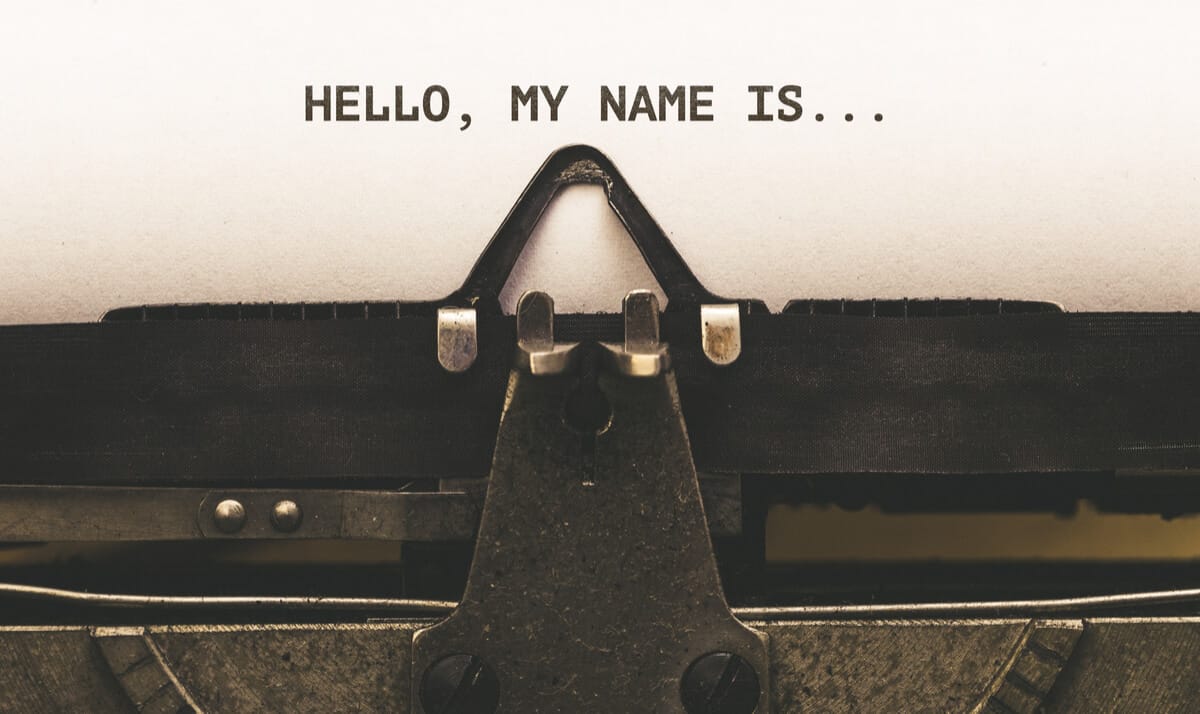There is time to visit waterfalls, and there is time to eat Icelandic hot dogs. But there is also a time to be philosophical. One of the most common questions among human beings is: Where do we come from? And to answer that question, it is important to know where our family name comes from. Naming customs are not the same across the globe. In Iceland, we also have a peculiar way of naming our descendants that you may not be familiar with. Let’s dive in and discover Icelandic naming customs. Maybe you’ll learn something new!

If you love watching videos on Youtube, you are probably familiar with this new trend of genetic testing to trace our roots. This way, you can find out, through your DNA, what composes your ancestry. We live in a fast-paced, globalized world. People come and go. We move to foreign countries, find a partner from a different culture and establish our families far away from home. Ok, not all of us. But generally speaking, the world is constantly changing.
But there is something that always remains permanent: our last name. First names and last names reveal a lot about our origins and our family. That’s probably why we are so curious about them. Do you know where your family’s name comes from? Did you know that the way we are given our surnames varies from culture to culture?
In this post about Icelandic naming customs, we are unable to establish a genealogical perspective regarding our Viking past, so we will mainly focus on linguistics. But first of all, let’s learn a bit about how family names originated.
Naming Customs – The Origin of Last Names
Nowadays, I’d dare to say that all of us have last names. But it wasn’t always like that. Surnames arose at separate times for different cultures.
In Asia, family names go so far back that it is hard to know exactly when they originated. It seems that Fu Xi, a legendary Chinese ruler, implemented the family name system by using a person’s title or occupation.
In the western world, both Romans and Greeks set the trend. They used to know each other only by their first name; no family names existed back then. Last names sank into oblivion and were no longer used until the Medieval period. In some countries, last names made a comeback by the end of the Middle Ages. Some others did not use last names until the very late XVII century.
Each culture has a different way of using surnames and family names. That is why there are so many, even within the same country. In some places, people inherit their last names from their father, while others do so from their mother. Last names can derive from professions, locations, the person’s origin, and even adjectives that describe a person’s physical appearance.
Naming Customs – How They Vary Around The Globe
You probably never wonder about other people’s surnames. Many of us don’t even question our last name. Neither its origin nor how it is formed linguistically speaking. Maybe we take it for granted, but the way surnames are made and given do vary from culture to culture.
Most central and northern European cultures use only one surname, the one they inherit from their father. Spaniards and people from Latin America, on the other hand, have two surnames. The first one is usually from their dad and the second one is their mother’s maiden name. In Russia, after your first name, your middle name derives from your dad’s first name and then, your family name. Let’s pretend you’re are Irina from St. Petersburg and your dad’s name is Alexander Kozlov. Well, your full name would then be Irina Alexandrova Kozlov. Cool, right? In Japan, being a member of a tribe is so important, that they don’t introduce themselves by using their first name and then their last name. They do it the other way around with the last name first! So Takashi Naoko would be Ms. Takashi in the western world.

Icelandic Naming Customs – How is it Done in Iceland?
For most people, the Icelandic language is very complicated both grammatically and phonetically. Well, when it comes to surnames, it’s not too confusing. You will probably hear a lot of last names using “–son” and “–dottir”. There’s a very simple explanation for this.
The Icelandic naming custom is patronymic. This means that the last name of the child is made by using the first name of the father and adding a suffix that means “son of” or “daughter of”. So, let’s pretend that Mr. Halldór Svenson has both a baby boy and a baby girl. His son’s last name would be “Halldórsson,” and his daughter’s would be “Halldórsdottir.” Easy as pie!
Patronymic last names are widely available in many cultures. In English, we also use “son” to form last names like Patterson or Davidson. “Mac” in Gaelic as in McLeod, means son of Leod, and the -ez suffix in Spanish as in Rodriguez, means “son of Rodrigo”, and so on. There is, however, a significant difference between these cultures and Icelandic naming customs.
In both the English and Spanish speaking world, one’s surname is inherited from generation to generation. Your dad’s name might not be John, but your last name can still be Johnson. The reason behind it is that the last name was given at a certain period to as “the son of John”, and then the last name passed from one generation to the next. The same idea applies to non-patronymic last names such as Smith, Miller, Taylor that were based on professions (eg. a silversmith or a tailor). So don’t worry if your dad’s not an actual tailor; you still belong to the Taylor family.
In Iceland, our last names do not stay the same generation after generation. Each child will receive their own father’s name plus the word son or daughter. So it will not be the same last name as their father, mother, grandfather, grandmother, or any older generations in the family. Thus, Icelanders don’t really have family names.
Icelandic Naming Customs – Cultural Differences
There is also a huge cultural difference between Iceland and the rest of the world. For most people, using last names is a formal way of addressing to another person and showing respect.
We Icelanders formally address everyone by their first names. It does not matter if they are the Prime minister of Iceland, a famous person or a clerk at a shop. We all use our first names and refer to others using it as well. It is neither impolite for us nor informal. It’s just the way we do it! If someone introduces me as Ms. Sigurðardóttir, I will give them a slight side eye. Please, call me Helga instead.
Fun Fact: Our telephone directory lists everyone by their first names. I guess we don’t need surnames that much because there are only around 320,000 of us. If we had a population of a million or more, the role of surnames would probably be totally different and more relevant as it is in other countries.

Icelandic Naming Customs – Last Names
Whatever your last name is and however it is formed, surnames provide some useful information about our ancestors and culture. Their occupation, origins and even physical appearance all form part of our last names. That is why I love to discover how surnames work in other places outside of Iceland. So, let me know in the comments below how last names work in your country. I would love to hear from you!




